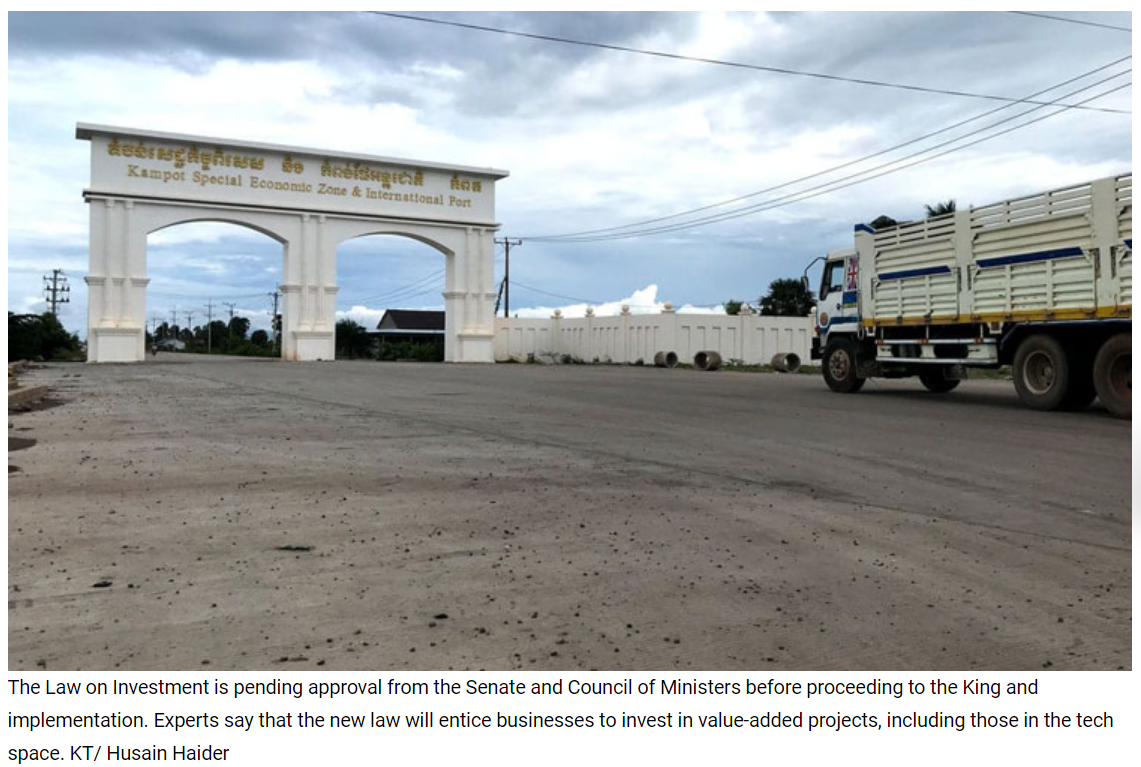Cambodia: New investment draft law intended to incentivise broadening of the economy
Cambodia’s new investment draft law is set to introduce new incentives for people to invest in the country.
The law is currently pending approval from the Senate and National Assembly before it is promulgated by the King and presumably enacted late next year.
It is expected that the law will encourage investments in the country’s digital economy and value-added products, expanding the economy beyond the current garment manufacturing base.
The draft law was prepared after years of consultation between the private sector and the government and is poised to be the first update to legislation governing investments since 1994’s Investment Law of Cambodia.
“The new investment law will not be a one-off single piece of legislation. It will be a series of legislative updates, including a new Law on Special Economic Zones and sub-decrees to provide final details with respect to the implementation of the investment law,” Clint O’Connell, partner, deputy managing director and head of Cambodia tax practice at DFDL Cambodia said.
Singapore-based law firm DFDL specialises in legal and tax law in frontier markets. It was the first authorised foreign and legal tax consultancy in Cambodia.
“The long-term goal of the Cambodian government is to try and move from labour-intensive industries like the garment sector that Cambodia currently has and try to encourage new investments, particularly in the high value-added sector and also try to encourage technology and e-commerce industries into Cambodia,” O’Connell continued.
Under the new investment law, qualified investment projects (QIPs) supporting the Kingdom’s exports will be able to import construction materials and equipment, production equipment and production inputs with customs, excise and value-added tax exceptions.
Domestic QIPs, which provide goods to the local market will gain similar benefits, but the incentive on inputs will be determined in forthcoming sub-decrees or the Law on Financial Management.
The new investment law will also grant all QIPs the ability to deduct from their tax base 150 percent of the cost of investing in research, development and innovation, human resource development, construction of accommodation, food courts for employees, affordable canteens, nurseries and other facilities for workers and upgrading machinery to serve the production line. O’Connell explained that this means that for every dollar spent, the QIP will be able to claim $1.50 back as an expense for the life of the project.
The Law on Financial Management is also going to outline additional incentives for special projects that have a “high potential” to contribute to the national economy.
Source: https://www.khmertimeskh.com/50908840/new-investment-draft-law-intended-to-incentivise-broadening-of-the-economy/


 English
English




